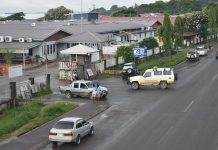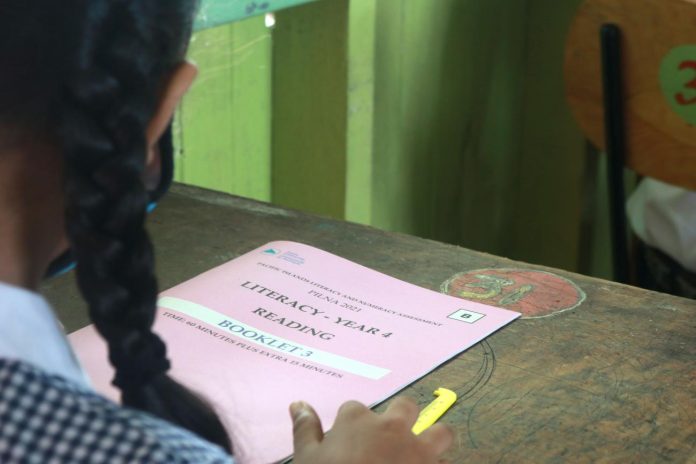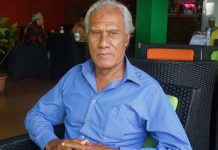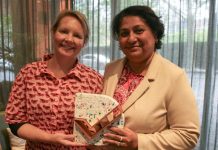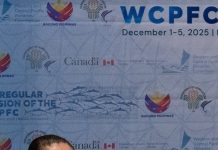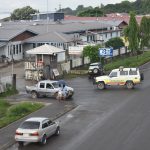The ninth meeting of the Pacific Islands Literacy and Numeracy Assessment (PILNA) Steering Committee has endorsed a new interactive reporting technique proposed by the Pacific Community’s (SPC) Educational Quality and Assessment Programme (EQAP).
PILNA, being the region’s largest assessment, focusses on the literacy and numeracy proficiency skills of Year 4 and Year 6 students. These are required skills that children need to progress through school and life, including literacy skills on reading and writing and numeracy on numbers, operations, measurements and data, that provides a measurement of regional standards based on a common scale. This gives the Pacific valid and reliable results to inform on the improvement of student learning outcomes over time.
EQAP’s Large Scale Assessment team, that is responsible for administering PILNA in 15 Pacific island countries (PICs), will now employ the features available in the new interactive digital report to highlight the key findings of the fourth cycle of PILNA related to participating schools across the region.
Apart from improving user accessibility, the interactive report will allow countries to download specific sections of the report relevant to their work while using minimum internet bandwidth to accommodate the varied levels of internet connectivity across the Pacific.
These country specific benefits will ripple into creating EQAP-specific benefits which includes a reduction in freight and printing costs as the interactive report will be fully digitised. The report was in printed form in the previous cycles.
The member countries acknowledged the innovative approach implemented by EQAP in making the PILNA report more interactive and embedding similar approaches across all of EQAP’s work.
“One of the things that I have come to really appreciate is the innovative nature of the work that EQAP and the partners are doing. Looking at the new communications strategy, the PILNA visibility campaign ideas and now this interactive report, I am just blown away, and I want to say that we appreciate the work that is continually happening as it comes across as dynamic, innovative, and there is ongoing learning in making the reporting better,” Elaine Lameta, Tokelau Director of Education, responding to EQAP’s interactive report proposal at the PILNA steering committee meeting.
The acknowledgments put forward by member countries were echoed by EQAP’s donors and development partners.
DFAT representatives congratulated EQAP and ACER on administering the PILNA in challenging circumstances. The PILNA results will be very valuable to policy makers and development partners in understanding the impacts of the pandemic on education service delivery in the region.
MFAT representatives also expressed their appreciation towards the administration of PILNA and the valued partnership with EQAP. MFAT continues to support the shared priority of ensuring Pacific learners have improved access to high-quality, equitable and relevant education. The cognitive and contextual data the PILNA provides continues to build the shared understanding of how this partnership lifts education outcomes for Pacific learners.
In 2012, PILNA was designed as a one-time assessment by EQAP with financial support provided by DFAT and the United Nations Educational, Scientific and Cultural Organization (UNESCO) to assess the literacy and numeracy standards of the Pacific. The LSA team, through technical partnership with the Australian Council for Educational Research (ACER), have worked in developing the assessment that is now targeted to improving the quality of education standards and needs of the EQAP member countries in the region.
EQAP’s Director, Dr Michelle Belisle, explained that she could not “think of any other instance where the decision making lies with the participating members, the development of items is informed by teams from all of the participating countries, and all of the analysis and work around reporting is carried out through active participation of the member countries. EQAP does not do anything unilaterally and I think that’s a huge strength of PILNA because it makes it belong to all of us.”
The PILNA Steering Committee also endorsed improvements to the administration methods, proposed by EQAP, including adopting the rotated booklet design that would help to cover and report against a wider spectrum of literacy and numeracy parameters and the separation of the literacy scale into two scales focussing on reporting reading and writing domains separately.
The new elements of the PILNA administration and reporting cycle, as well as feedback from member countries and donors/development partners will be captured and promoted through a social media campaign that was noted by the steering committee members. The campaign is in line with the innovative approaches embedded within EQAP’s new Communications and Visibility strategy.
The 2021 PILNA cycle has been made possible with funding support from DFAT and New Zealand Ministry of Foreign Affairs and Trade (MFAT).
The interactive PILNA report will be launched during this year’s International Literacy Day celebrations on 8 September.
Media contact(s):Sonal Aujla, Communications and Visibility Officer, Educational Quality and Assessment Programme (EQAP), Pacific Community (SPC) | sonala@spc.int
SOURCE: SPC/PACNEWS


